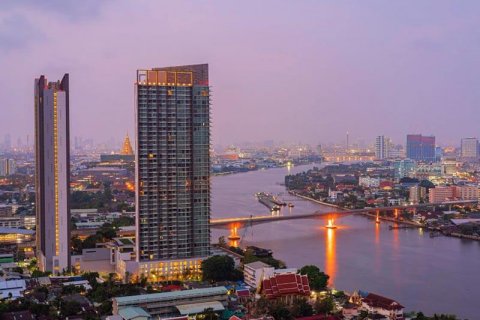
The real estate market is recovering, but faces a bunch of new problems: rising loan interest rates, rising prices for materials, inflation. Houses and condominiums are expected to rise in price by 5-10%. The Government recommends extending the mortgage interest benefit and stimulating purchasing power in the entire market in other ways.
In the fourth quarter of 2022, the real estate sector as a whole showed positive signs of sales recovery. Measures to stimulate the real estate market expire on December 31, 2022. Therefore, investing in the development of projects next year becomes a big problem.
The Bank of Thailand is considering special conditions for a mortgage for the purchase of a second low-rise house.
Previously, customers could take out a mortgage of 100-110% on any number of houses, but it will be reduced to 90% for the second mortgage loan and up to 80% for the third housing loan. That is, in this case, the buyer must have an initial payment or savings for the purchase of real estate.
Previously, in Thailand, when applying for a housing loan, they required a 5% down payment without a limit on the number of houses. In 2019, the Bank of Thailand saw speculation with housing, and therefore LTV measures were introduced to buy houses. The first one uses the same criteria for an initial payment of 5-10%, but the second purchase further reduces the share of the loan, increasing the initial payment by 20-30%.
Due to COVID-19, the Bank of Thailand has issued LTV relief criteria, valid until December 31, 2022, requiring banks to issue 100% of all loans, while the Bankers' Association of Thailand offers an additional 10% as a loan for the purchase of additional furniture and repairs.
It turns out that LTV relief measures allow banks to lend more than usual at 110% until December 31 of this year.
What are the decisions on the extension/non-extension of measures to reduce LTV:
-
The information used by the National Bank for consideration comes from the level of sales in the first half of 2022, which clearly increased.
However, in the second half of 2022, the numerical trend is definitely not as good as in the first half. Due to the increase in prices for materials and work.
That is, in 2022, the Bank did not wait for the final data for the year, but decided to base the decision on the data of the first half of the year.
-
Reasons for the LTV decline in the COVID era: The Bank took action because it saw that there was no speculation. Hence the termination of credit assistance in the event of an emergency.
-
Purchasing behavior of low–rise residential complexes: 99% of buyers buy it for living - real demand. Unlike condos, which have customers who buy for resale or for rent.
-
More importantly, will the price of housing be more expensive next year or not? Everyone expected that after the end of the pandemic, everything would return to its place and the economy would begin to grow, but the Russian-Ukrainian conflict happened and a new crisis began.
The general picture of the market: prices for houses and apartments did not grow in the first half of 2022 and were artificially reduced, while by the second half of the year the price increased by an average of 5-10%.
The price situation in the first half of next year remains the same as this year. According to the competition mechanism, developers will keep the previous price fixed. But the second half of 2023 will be a period that will reflect new construction costs. Prices may rise by more than 5%.


